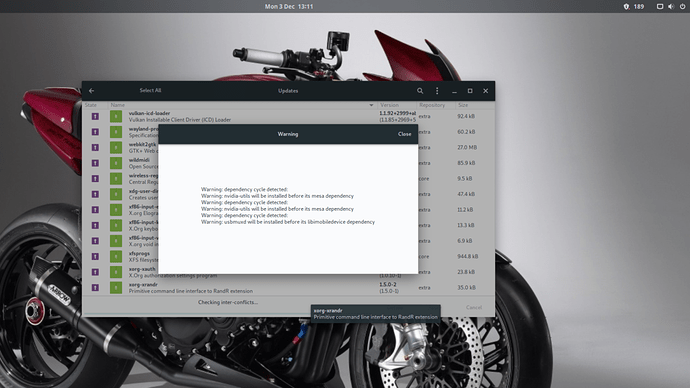Well, LXQT is still in early development but in a couple(?) years it will supersede XFCE and LXDE as the most lightweight DEs. That said, I have a surprisingly balanced opinion on current Ubuntu, dispite my negative view on Ubuntu in general.
We have to keep up with time
Nowadays, I don’t understand many distribution developers (especially when they are making a derivative of an already existing base distro) when they are saying “Oh, look at that, we took the original distro and made it even slimmer! The installation image takes less than 1GB!” or when I read a bit of the LFS book saying e.g. “[…]They’re just sitting there taking up (precious) disk space. It’s not hard to get an LFS system installed under 100 MB.[…]”, because what is precious about disk space nowadays? It is the cheapest thing you can infinitely expand on your computer. A week ago I bought a SanDisk 120GB SSD for around ~$25. 2 years ago, I bought used HDDs, totaling in 20TB hard drive space for less than $50. I have a dedicated 128GB SSD for my Linux installations and it barely takes 1/4 of the SSD space, which means, that the rest is basically wasted at the moment.
(All this of course applies to desktop computers. When I have a Raspberry Pi that temporarily runs an old 8GB microSD, then of course disk/card space matters, I totally agree on this specific type of case.)
Additionally, certain distributions have certain targets. A dumb example for demonstration purposes: I won’t recommend opnSense to someone who wants to do office work on their PC. I also won’t recommend Puppy Linux or Damn Small Linux to someone with a high-end powerhouse. Therefore, I wouldn’t recommend Ubuntu to Linux power users like myself, either. Each distro has their own target audience. I can’t blame DSL for not having enough hardware support and all the programs I usually use on my Debian system. I also can’t blame Ubuntu for being bigger and hipster, because it is meant to be that way.
Therefore, I don’t mind a newer and in their view “better” Ubuntu taking up about 2GB of initial space, which is double the amount that competition usually offers. Even if it was 5 to 7 GB for something that usually takes about 1GB, I wouldn’t even mind, as long as the distribution is good.
Ubuntu is the Apple of Linux
Open source here, open source there, open source everywhere. It’s all the same, right? Not at all. I won’t go into detail regarding the different ways of how open source is handled through Licenses, because that would be too much. Let’s just say, that there is a lot of flexibility in the word open source once you choose the right License(s). What I want to point out though, is the following opinion: a product can never be a 100% open source when run by a company, because a company in our currently capitalistic world is physically and due to pure logic unable to have only (or mainly) typical open source goals in mind. It just doesn’t work that way.
So that already says a lot about how Canonical makes decisions regarding Ubuntu. To keep it short, I assume that this is obvious.
That said, Ubuntu obviously tries to push some “limits” and be hipster with some “unique” stuff they provide. I want to show my disagreement by putting those words into quotation marks. To name a few things, that should make it obvious:
Wayland, Unity, by principle based on cutting edge content, PPA. These are only the properties I could pull out of my head right now.
In my view Unity was one of the biggest failures, because it truly created a big Apple experience. When I tried it out, I couldn’t even change the position of the close|minimize|maximize buttons, because they were hard coded to be on the Mac side of the world.
Now combine my point about companies hosting open source projects and the hipsterness of Ubuntu and you can conclude how Ubuntu is supposed to work, what its view and vision more or less is and who it wants to appeal to.
Conclusion
Ubuntu is not the “worst” or something like that but definitely has many issues. Is that by itself bad? No, still not, everything has issues. The thing about Ubuntu though: it is considered one of the top distributions. At some point in history it definitely was. Now not anymore. The hype is especially gone in between people who have a lot to do with Linux from day to day and people that work with such systems, anyway. Yet, Linux magazines etc. talk about this distro all the time. Ubuntu has set its milestone and lives through the present by emphasizing the ghost of what it once was and trying to keep it in the minds of people. E.g. by doing all the hipster stuff. (Similarly to Windows, since it is garbage right now but of course everyone uses it, because it made a huge point more than a decade ago with XP and when it came out in the 90s).
Basically, if you are a hipster Windows kiddo, trying to do your thing then probably Ubuntu is one of the best alternatives you can get if you don’t have the money for an extremely overpriced Personal Computer a.k.a. Apple product.

